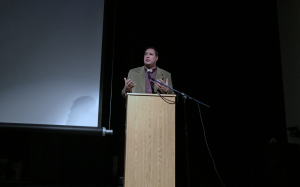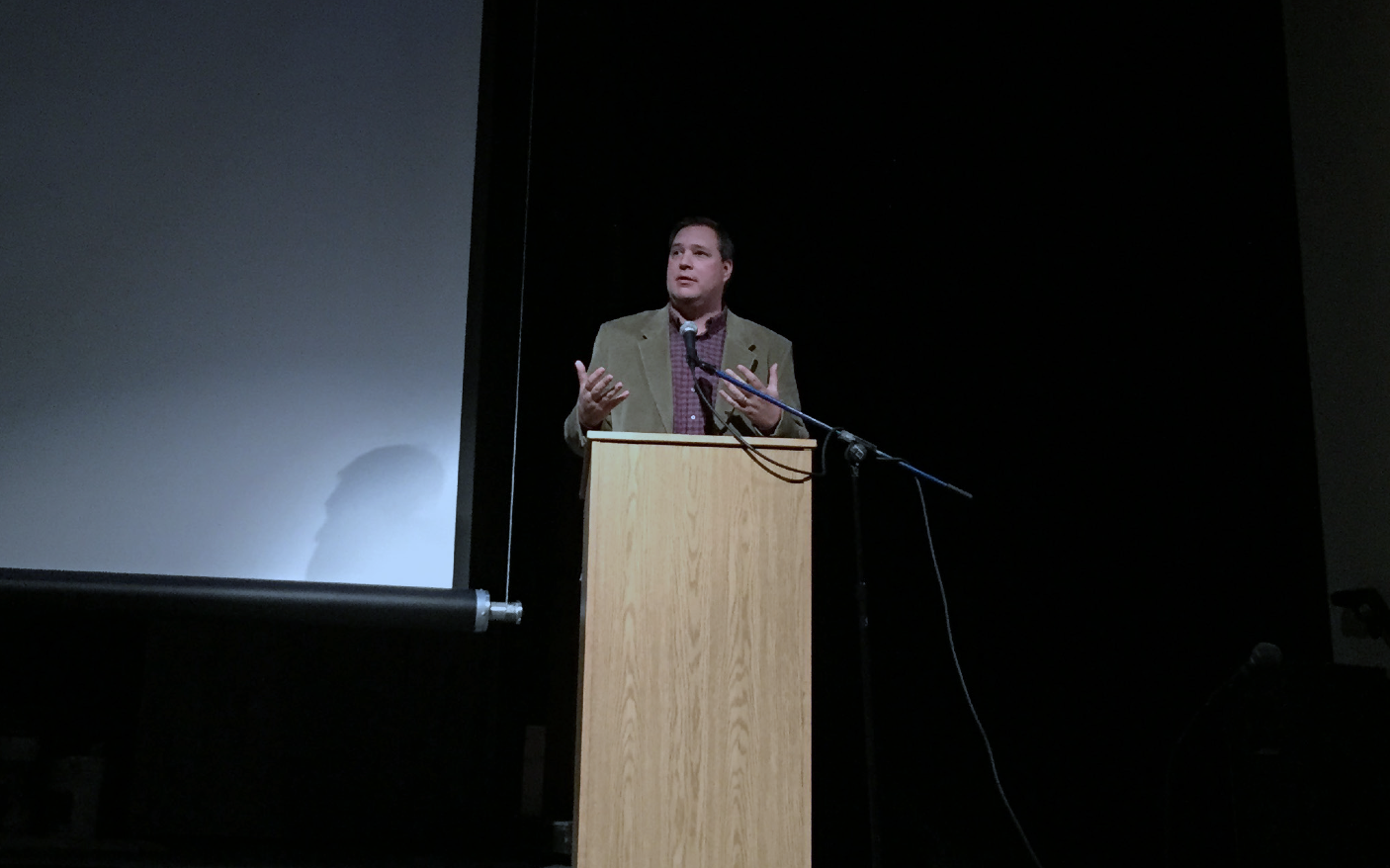
It was no surprise that every student interviewed for the video of the November 16 assembly on Conservative Theory self-identified as a Democrat. Here at Fieldston, while we strive to foster a diverse community and in many ways succeed in doing so, political viewpoints remain relatively homogenous.
The vast majority of Fieldston families are registered Democrats. Our assemblies often present controversial subjects through a progressive lens, and despite the politically neutral stance most teachers seek to embody, liberalism undoubtedly seeps into the classroom.
The liberal voice rings so loudly that conservative perspectives most often play a meager role in the conversation at best. The speakers at the Conservative Theory assembly made no point of selling Republican views or of discrediting liberal ideals. They did, however, raise several questions worth pondering.
The first to speak, Sam Appel (Form V), began by presenting statistics on the demographics and beliefs of both the Republican and Democratic parties.
“We cannot make the mistake of thinking that all Republicans are old, religious, white guys and Democrats are young, not so religious, not so white women,” he said.
Sam explained that while men comprise 90% of Republican representatives, women only comprise 24% of Democrats. 90% of Republicans are also white, a statistic not radically disparate from the 74% of Democrats who are white. 60% of Republicans are creationists, but so are 40% of Democrats, and while only 40% of Republicans endorse marriage equality, only 69% of Democrats do the same. Sam acknowledged that these differences are significant, but also pointed out that neither party is monolithic.
“When we criticize the gender gap in representation and the racial gap in representation, and anachronistic beliefs,” Sam said, “we must realize that both parties possess these faults.”
Sam concluded by drawing an analogy between feminism and conservatism.
One of last spring’s “I need feminism because…” photographs, he told us, stated: “I need feminism because if we only listen to half of the world’s people, it’s going to take twice as long to have flying cars.” Sam argued that the same applies to conservatism.
“If we roll our eyes or change the channel every time a Republican or conservative speaks on TV or at Fieldston,” he said, “then we are ignoring half the world’s population and it is going to take twice as long to have flying cars.”
A member of the Fieldston class of 1989, the assembly’s guest speaker Andrew Langer proceeded to talk about his personal political views, his thinking regarding the tackling of challenging dialogues, and his work at the Institute for Liberty (IFL), where he has served as president since 2008.
IFL, as stated on its website, works to be “an aggressive defender of the rights of individuals to pursue the American dream…[by] pushing back against the expansion of the state.” The organization engages in a variety of political issues, including promoting small businesses, protecting capitalist ideals, and preserving free speech. Langer identifies as “’a small ‘l’ libertarian’ as opposed to a traditional conservative” and characterized his voting approach to be one where he supports candidates with whom he shares political philosophy, not party affiliation.
More than anything, Langer used his time at Fieldston to emphasize the power and urgency of dialogues across competing views, and to encourage us to look beyond party walls and to understand the profound similarities even the most lefty progressive and traditional conservative share.
“We’ve got a lot of real problems to solve,” Langer said, “[and] we are all facing the same threats. The only way we are going to solve these problems is if we have these discussions and find common ground.”
Common ground is at the core of what Langer seeks to facilitate through his work at IFL.
“We have to stop thinking about things in terms of Republican and Democrat,” he said. “I hate to tell you, but both major political parties are dying.”
This assertion grows from Langer’s belief that the current tragedy of policymakers lies in the steadfastness of their given viewpoints, as it inhibits their ability to find common ground. The Republican and Democratic parties are doomed, he said, “because they are so entrenched and so statist that there is no opportunity for real dialogue and discussion.”
This assembly voiced a frequently silenced set of perspectives and raised the question, is there an “opportunity for real dialogue and discussion” at Fieldston? While classrooms flourish with rich and sometimes heated debate on many issues, the fact of the matter is that with such a limited sampling of conservative views, it becomes difficult to engage in robust ideological cross-pollination.
We do not often think of political opinion as a facet of diversity that should be considered by the admissions office. However, Langer cogently presented the benefit of having a variety of viewpoints in the room. Ideological diversity might enable a greater level of challenge, exchange, and learning. Perhaps it’s time to broaden our definition of what it means to be a diverse community.









